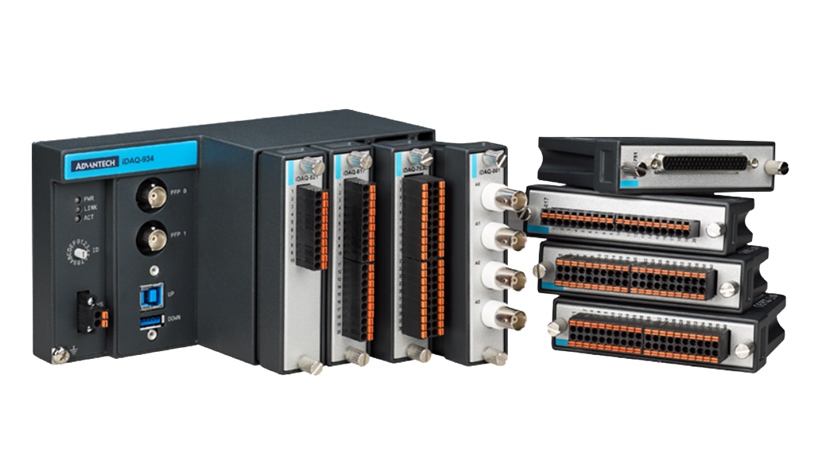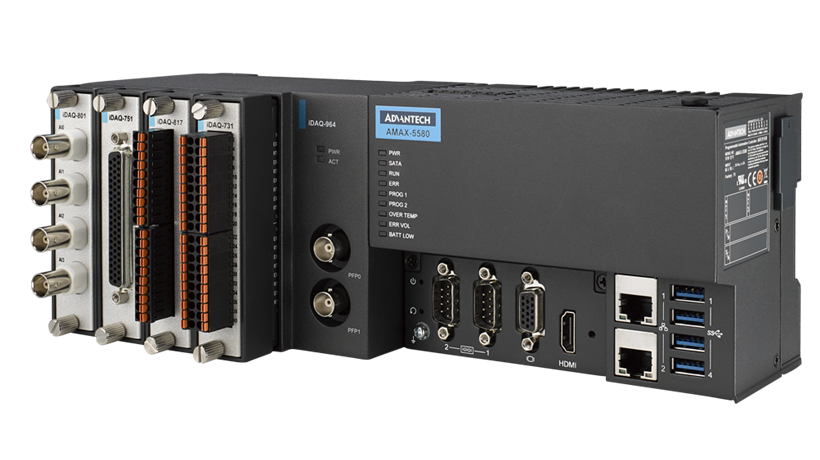Advantech Launches New iDAQ Modular DAQ Series Targeting the Test and Measurement Market
10/26/2021
Modular design, good flexibility
iDAQ modules are hot-swappable, which makes maintenance very simple. When an iDAQ module is integrated in a machine used as a measurement device, it will cumulatively incur damage after long periods of constant use. Hot swapping is used to replace a damaged module without interrupting its operation, avoiding the nuisance of shutting down and then restarting critical equipment such as servers which need to be continuously running. Also, in laboratory scenarios, measurement signal types can vary from test program to test program according actual needs, so a DAQ system hot-swap features is very helpful for lab technicians to swap modules according to project requirements.


iDAQ-900 series chassis provides fast bus access on the backplane to connect iDAQ modules. There are triggers and pacer clocks in the timing signals which control when the measurement cycle will start and stop, as well as the acquisition speed. Each of the DAQ modules can be synchronized together using the same clock and trigger event via the bus. This makes synchronization easy with Advantech iDAQ systems because they only need to be configured in the software, which also means no complicated wiring.
On top of the backplane bus, programmable function pins (PFP) in the iDAQ-900 chassis provide an interface for timing control. The DAQ modules can be configured as either input or output signal types, and as either single pulse or clock types. This provides great flexibility for field applications needing to synchronize with external devices, or to be triggered by other devices simply with pulses.
Ruggedized design against bad environments
Multiple interfaces, one SDK
The iDAQ system relies on the DAQNavi/SDK as a development package. It provides a Navigator utility to configure the module and chassis, and test its functionalities. Example codes are provided to help guide programmers in how to use the API suite. In addition, Advantech also released a Python SDK so customers can quickly build a test their solution and prove its reliability.
The programming code for iDAQ systems are inter-changeable among chassis. For example, the programs completed based on iDAQ-934 can be moved to iDAQ-964 directly with only slight modification on device names. With its modular and rugged design, simplified wiring and ease-of-use SDK, the Advantech iDAQ system will be an ideal choice for test and measurement scenarios that will need to face future DAQ testing challenges.
To learn more contact your local Advantech sales team.
-25/841-3--_Square20220208175637.jpg)
-25/821-3--_Square20211019171535.jpg)
-25/817-3--_Square20211019171416.jpg)
-25/763-3--_Square20211019170510.jpg)
-25/801-3--_Square20211019171101.jpg)



